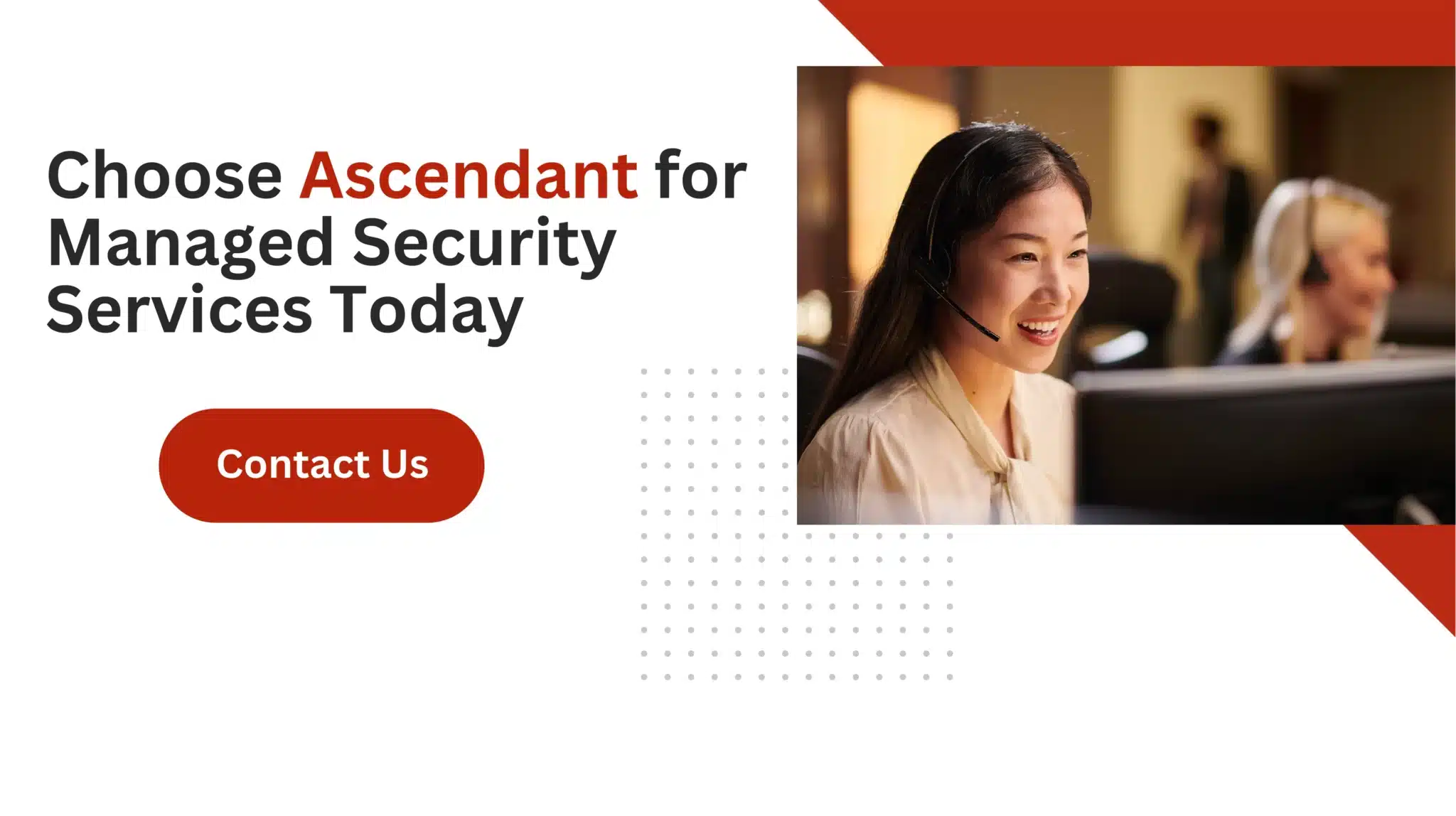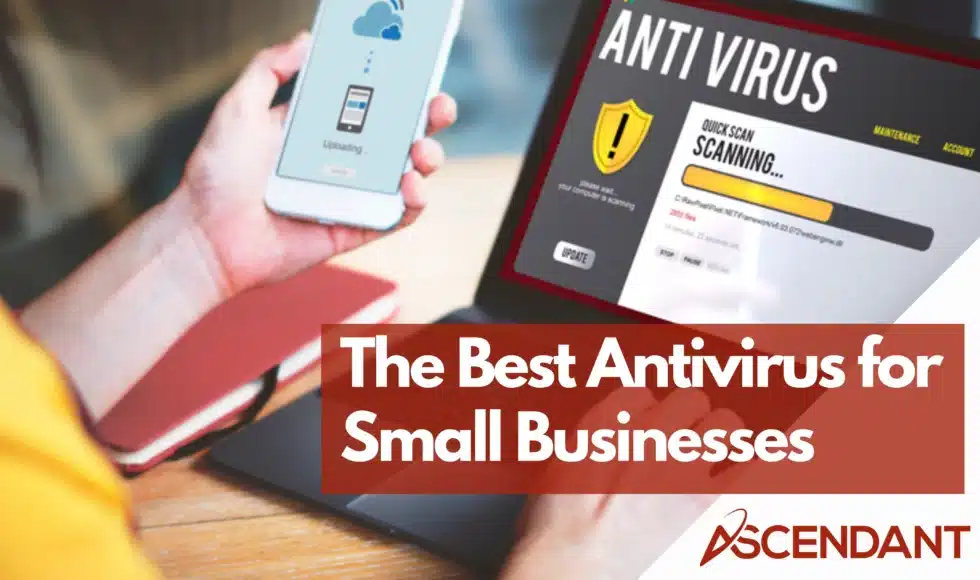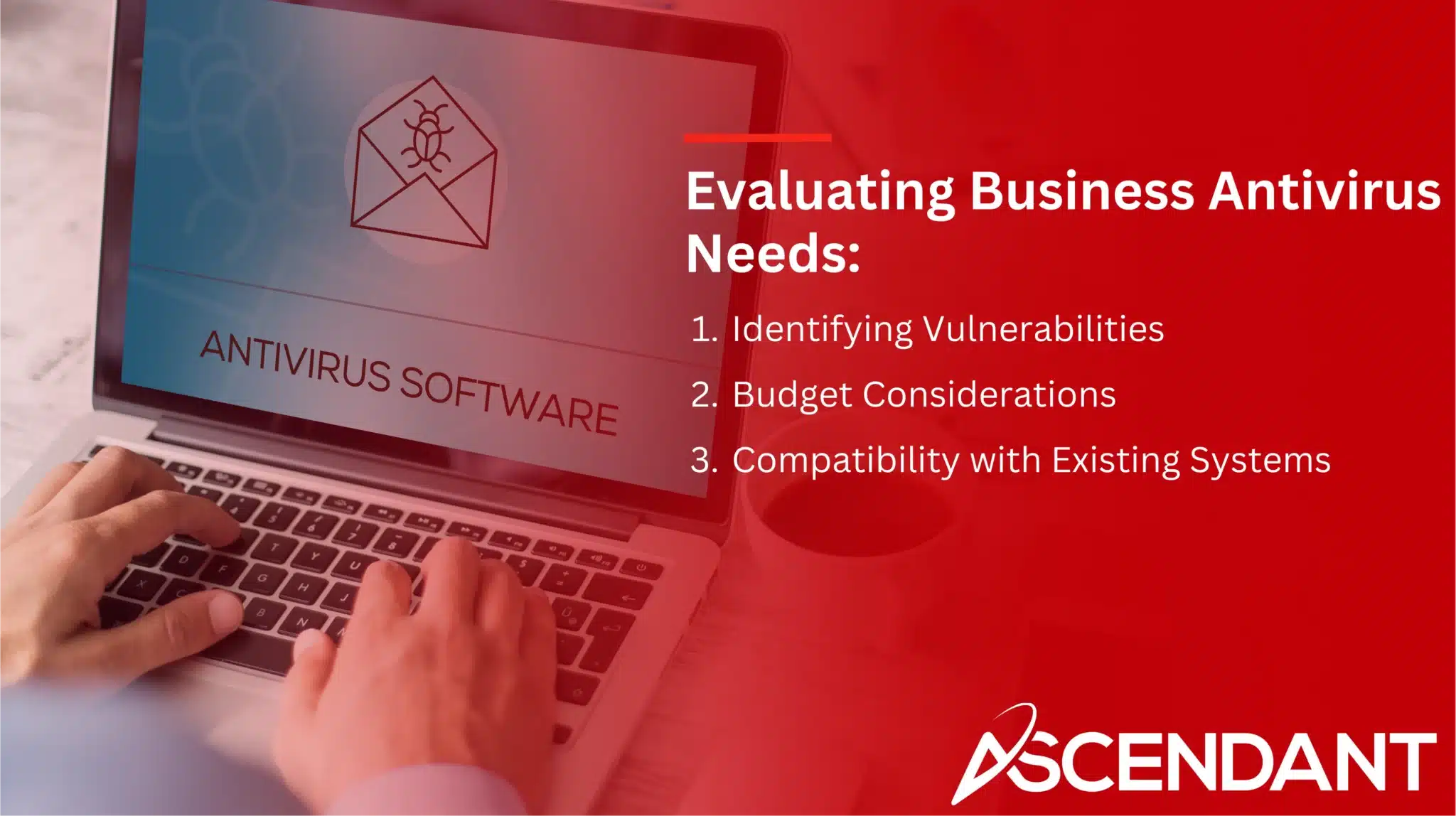Looking for the best antivirus for small business? In this guide, we evaluate the top choices, essential features, costs, and compatibility to help you secure your business data.
Key Takeaways
- Small businesses need robust antivirus software to protect against cyber threats and maintain customer trust, as they are often targeted due to perceived vulnerabilities.
- When selecting antivirus solutions, businesses should assess their specific needs, including budget, compatibility with existing systems, and essential features like real-time protection and ease of management.
- Top antivirus solutions for small businesses in 2024 include Norton Small Business, Bitdefender GravityZone, Avast Premium Business, Kaspersky Endpoint Security, and ESET Protect Complete, each offering unique protections tailored to small business needs.
Why Small Businesses Need Antivirus Software
Antivirus protection is essential for any enterprise operating with devices connected to the internet. Cybercriminals frequently target small businesses due to their potentially less stringent security protocols, attempting to exploit weak points in order to access confidential information. This can lead not only to data breaches, but also severe financial detriment and harm to the company’s reputation. Without strong antivirus software measures in place, a small business might suffer considerable downtime and incur substantial economic damages from these attacks.
The investment into trustworthy business antivirus software bolsters not just the safety of crucial business data, but also fortifies consumer confidence. In times where cybercrime’s economic repercussions are predicted to escalate globally, it’s vital that small enterprises give cybersecurity ample consideration as they navigate evolving threats.
Choosing superior security software entails evaluating various risks against potential rewards. Hence opting for an optimal solution necessitates one that provides extensive coverage over a diverse range of digital security threats – this includes what may typically be considered consumer-oriented antivirus solutions as well as those designed specifically for businesses.
Evaluating Business Antivirus Needs
The antivirus protection needs of a company vary widely, shaped by elements like sector type, number of staff members, and the delicacy of information processed. Assessing which antivirus solution aligns best with your enterprise’s distinct requirements is imperative for adequate security. A robust cybersecurity plan must include advanced endpoint protection strategies, patch management systems, VPN capabilities along with dependable antivirus software.
When weighing options for business antivirus solutions, one should take into account potential weaknesses in their system while also balancing financial considerations and ensuring that the chosen software integrates seamlessly with current infrastructures without hampering day-to-day work.
Now let us explore these topics more thoroughly.
Identifying Vulnerabilities
Neglecting robust cyber hygiene practices, such as recycling passwords or overlooking the implementation of multi-factor authentication, can leave small businesses exposed to potential cyber threats. It’s imperative that cybersecurity software is installed on every device linked to the business network in order to safeguard against these vulnerabilities.
Acknowledging the existing vulnerabilities within a system is crucial for crafting an effective defense strategy. This approach ensures that all possible access points are fortified against any cyber-attacks aimed at penetrating the network.
Budget Considerations
It’s critical for small businesses to align their antivirus software investments with their IT budgeting and purchasing timeline. Selecting the least expensive option might seem attractive, but it’s vital to evaluate both the capabilities and security coverage provided.
Take into account that McAfee offers a yearly subscription at $110.99 for three devices, while TotalAV has an entry-level package commencing at $19.00 annually. When deciding on these expenses, small businesses must balance them against the significant monetary threats posed by data breaches and cyberattacks.
Compatibility with Existing Systems
Ensuring the selected antivirus solution is compatible with current operating systems and mobile devices is crucial to maintaining uninterrupted business activities. This compatibility checks safeguard against any operational hiccups during software setup and guarantees that the antivirus software operates without a hitch on all corporate gadgets, encompassing servers, desktop computers, and portable devices.
Essential Features of Business Antivirus Software
When choosing antivirus software for a business, it is essential to select one that provides all-encompassing security suited to the specific requirements of your company. A proficient business antivirus should encompass layered defense mechanisms across files, networks, and applications while also safeguarding against attacks specifically aimed at compromising the antivirus program.
The inclusion of advanced features such as behavior-based detection—scrutinizing unusual file activity—is crucial for recognizing emerging threats that have not been previously cataloged in malware databases. Conducting regular malware scans paired with real-time protection forms a formidable barrier against various cybersecurity threats. We will delve deeper into these indispensable attributes next.
Comprehensive Protection
Antivirus software designed for businesses needs to shield against a multitude of cyber risks, such as ransomware, malware attacks, phishing schemes, and threats originating from internet activities. Avast Premium Business Security leverages sophisticated heuristics along with machine learning algorithms to accurately identify emerging dangers. Similarly important in safeguarding small business environments is Norton Small Business, which provides instantaneous defense mechanisms against malicious software intrusions and deceptive phishing incidents.
Continual vigilance is vital. Antivirus solutions like McAfee offer continuous real-time scanning features that maintain unwavering guard over your system’s security landscape. ESET antivirus also delivers a strong line of defense by specializing in thwarting ransomware incursions, detecting and blocking phishers’ attempts, reinforcing exploit barriers and recognizing out-of-the-ordinary patterns indicative of novel threats.
The amalgamation of these protective elements guarantees comprehensive coverage across all devices within the network—effectively barricading them from sophisticated digital threats while bolstering crucial data protection strategies pivotal for small businesses managing sensitive information.
Performance and Impact
It is essential to choose antivirus software that ensures strong security without significantly slowing down your system’s performance. ESET antivirus software and AVG Antivirus Business Edition both have a reputation for offering protection with a minimal effect on device functioning, allowing your systems to operate efficiently while safeguarded.
Ease of Use and Management
Effective security management requires a centralized management platform with a user-friendly interface. Kaspersky’s Endpoint Security offers business owners an enhanced usability experience through its simplified user interface. It provides centralized dashboards that allow for streamlined managing and monitoring of multiple endpoints, simplifying the task of maintaining security across all devices.
Top Antivirus Solutions for Small Businesses in 2024
In 2024, when it comes to choosing the ideal business antivirus software for small enterprises, there are several robust options available. Among them is Avast Premium Business Security—a prime choice celebrated as one of the best business antivirus solutions. Another top contender is Kaspersky Endpoint Security Cloud, which has been specifically designed with endpoint security in mind and offers a comprehensive security cloud service.
For small businesses that operate across multiple devices and need protection from cyber threats, Norton Small Business emerges as an optimal solution by delivering real-time protection seamlessly. Each software option has been carefully crafted to cater effectively to the varying demands presented by small organizations while maintaining a focus on critical aspects like ease of setup and consistent updates alongside thorough scanning features.
Consequently, making an informed decision involves understanding that every leading candidate—Norton Small Business, Bitdefender GravityZone Business Security, Avast Premium Business Security, Kaspersky Endpoint Security Cloud Plus, ESET Protect Complete—offers a distinct set of advantages geared towards enhancing business security for smaller companies.
Ensuring effective defense against digital dangers means focusing on crucial attributes such as immediate protective measures against newly identified hazards (real-time protection), compatibility with various devices used within your company’s operations (support for multiple devices), straightforward installation processes (easy setup), automated version refreshes (automatic updates), along with extensive examination methods when searching out potential risks or infiltrations (comprehensive scanning options). A closer inspection into what sets each frontrunner apart will follow next.
Norton Small Business
Norton Small Business offers robust antivirus protection tailored specifically to the unique needs of small enterprises, capable of securing up to 20 devices. This makes it an adaptable solution for a variety of small businesses. For an annual fee starting at $119.99, it defends against various threats such as malware and phishing attacks.
The product is explicitly crafted with features that cater to the requirements of small business owners, ensuring their cybersecurity needs are effectively met by Norton’s dedicated service for smaller operations.
Bitdefender GravityZone Business Security
Renowned for its extensive protective capabilities and cloud-managed system, Bitdefender GravityZone Business Security offers compatibility across Windows, macOS, and Linux platforms. Pricing begins at $77.69 annually, covering a minimum of three business devices.
The proficiency of Bitdefender in identifying every one of the five virus-compromised files underscores its powerful defense mechanisms geared towards safeguarding business devices.
Avast Premium Business Security
Avast Premium Business Security delivers cutting-edge antivirus and anti-malware defenses, employing sophisticated machine learning methods along with advanced heuristics. It provides administrators the convenience of remote management capabilities, ensuring they can maintain security oversight from any location. This offering also encompasses avast ultimate business security.
For small businesses seeking a cost-efficient approach to business security, this platform is priced competitively at $39.85 annually for each device, representing an accessible investment in robust protection measures.
Kaspersky Endpoint Security Cloud Plus
Kaspersky Endpoint Security Cloud Plus delivers extensive endpoint security through a user-friendly interface. It is designed for ease of use and offers solid protection for up to five devices at an annual cost of $342.50.
To unlock the complete range of EDR (Endpoint Detection and Response) capabilities, it is necessary to have a Pro subscription.
ESET Protect Complete
ESET Protect Complete is recognized for providing a wide range of security measures, particularly its capabilities in safeguarding against ransomware and guarding against phishing attempts. Priced from $211.00 annually for five devices, this solution presents an affordable and reliable option tailored to the needs of small businesses. There’s a 30-day free trial on offer, allowing potential users to evaluate its features before committing financially.
Comparing Free vs. Paid Antivirus Software
Antivirus software that is available for free typically follows a reactive approach, recognizing threats only once they have become apparent. Such free antivirus programs offer elementary levels of protection but are missing the wide array of features and substantial support found in paid versions, rendering them somewhat inferior in efficacy. Paid antivirus options Incorporate cutting-edge technology such as machine learning to identify threats faster and include additional functions like sandboxing and patch management.
For businesses, opting for free antivirus can come with significant drawbacks including limited functionalities, reduced security effectiveness, and an absence of customer service. It’s noteworthy that many free antivirus solutions aren’t legally permitted for commercial use, which renders them inappropriate for small businesses. In contrast, paid versions provide continual customer assistance, which plays an essential role both in mitigating security incidents promptly and maintaining consistent protective measures over time.
How to Implement and Test Antivirus Software
Ensuring that the antivirus software is tailored to your company’s particular requirements involves a thorough implementation and testing process. Setting aside time for trial periods gives companies an opportunity to determine how well the software performs and integrates with their existing infrastructure prior to making a purchase. It’s important to assess both the ease of integration of the antivirus solution into current systems, as well as its influence on business operations.
In the course of evaluating this software during trials, it is crucial for businesses to keep track of how it affects system resources continuously. By consistently analyzing metrics related to system performance, any detrimental effects attributed to the antivirus can be identified promptly. This allows businesses not only ensure that they are receiving strong security from their chosen solution, but also maintain operational productivity without compromise.
Scheduling Trials
Ensuring adequate time is set aside for trial periods enables companies to comprehensively evaluate the antivirus software’s integration simplicity and functional characteristics. It’s essential to determine the degree of compatibility between the software and current systems, as well as its broader effects on business processes.
By carefully planning these evaluation phases, businesses are equipped to make knowledgeable choices that hinge on how well the antivirus performs during testing.
Monitoring Performance
It is crucial, throughout the trial period, to regularly assess how the antivirus software affects your system’s performance and resource utilization. Monitoring these metrics closely will allow you to detect any adverse effects brought about by the antivirus solution while ensuring that it delivers strong security without compromising on operational efficiency.
The importance of this practice lies in finding an antivirus solution that strikes an ideal balance between providing effective protection and maintaining optimal system performance.
Common Cybersecurity Threats for Small Businesses
Due to often inadequate security defenses, small businesses are frequently in the crosshairs of cybercriminals. These attackers commonly deploy tactics such as ransomware attacks that encrypt critical files and coerce victims into paying a fee for decryption, alongside phishing schemes designed to trick individuals into disclosing sensitive data. Scrutinizing both user actions and technological assets is crucial in revealing weaknesses that may exist within their systems.
To fortify themselves against these digital threats, it is imperative for small enterprises to thoroughly examine their IT infrastructure—spanning hardware and software—and scrutinize the conduct of users interacting with these systems. By gaining a comprehensive understanding of the potential risks and points of exposure they face, these businesses can craft an effective defense mechanism aimed at safeguarding their valuable information and ensuring uninterrupted business continuity amidst the rising tide of cyber attacks.
Best Practices for Maintaining Business Antivirus Software
It is essential to perform full scans with your antivirus software on a monthly basis and initiate quick scans every time you log in. Current antivirus programs are designed to update themselves automatically as soon as an internet connection is established, making certain that they utilize the most recent virus definitions. The use of a centralized management system for your antivirus ensures uniform updates and surveillance across various devices.
It’s advisable to provide ongoing education about internet security and antivirus protection for all staff members. It’s important for employees to be aware of the dangers associated with installing unauthorized software and comply with organizational policies rigorously. Recording audit logs from these antivirus activities plays a crucial role, not only for reference purposes but also in supporting any potential forensic examinations in the future.
Summary
To conclude, the process of choosing suitable antivirus software for a small business requires assessing unique requirements, recognizing key functionalities, and picking from among the premier options offered in 2024. Establishing and upholding strong antivirus protection is vital to defending against cybersecurity threats and guaranteeing uninterrupted business activities. Be proactive in securing your enterprise to preserve consumer confidence.
 Frequently Asked Questions
Frequently Asked Questions
Why is antivirus software important for small businesses?
Antivirus software is essential for small businesses as it safeguards against cyber threats like malware and ransomware, helping to prevent data breaches and financial losses.
Effective protection ensures business continuity and builds trust with customers.
What factors should small businesses consider when choosing antivirus software?
Small businesses should prioritize specific vulnerabilities, budget constraints, and compatibility with existing systems when selecting antivirus software.
This approach ensures effective protection while maintaining operational efficiency.
What are the differences between free and paid antivirus software?
Free antivirus software offers basic protection, while paid versions provide advanced features, robust support, and enhanced reliability for business use.
For optimal security, investing in a paid antivirus is often the best choice.
How can small businesses effectively implement and test antivirus software?
To effectively implement and test antivirus software, small businesses should dedicate adequate time to trials, closely monitoring integration and system performance to identify any issues.
This approach ensures that the chosen solution meets their specific needs without disrupting operations.
What are some common cybersecurity threats that small businesses face?
Small businesses commonly face threats such as ransomware, phishing attacks, and inadequate cybersecurity practices.
It’s essential to assess user behavior and technology to identify and address these vulnerabilities effectively.


